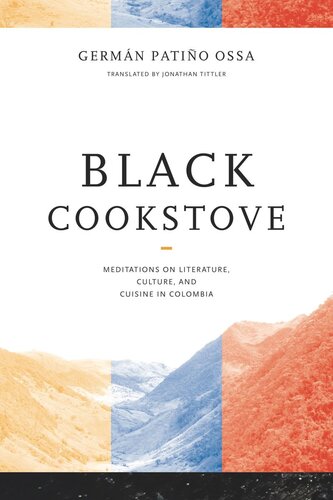

Most ebook files are in PDF format, so you can easily read them using various software such as Foxit Reader or directly on the Google Chrome browser.
Some ebook files are released by publishers in other formats such as .awz, .mobi, .epub, .fb2, etc. You may need to install specific software to read these formats on mobile/PC, such as Calibre.
Please read the tutorial at this link: https://ebookbell.com/faq
We offer FREE conversion to the popular formats you request; however, this may take some time. Therefore, right after payment, please email us, and we will try to provide the service as quickly as possible.
For some exceptional file formats or broken links (if any), please refrain from opening any disputes. Instead, email us first, and we will try to assist within a maximum of 6 hours.
EbookBell Team

0.0
0 reviewsWinner of the 2006 Andrés Bello Award for Memory and Ibero-American Thought
In this evocatively written book, Germán Patiño Ossa presents the cultural universe and national identities of Colombia through the lens of traditional cuisine. Focusing on the Cauca Valley, a fertile area in southwestern Colombia where Spanish, Native American, and African communities converged over the centuries, Patiño Ossa studies the food of these communities and its place in the region’s culture.
Using Jorge Isaacs’s nineteenth-century Romantic novel María as a realistic source for cultural practices among Colombia’s slaveholding elite, Patiño Ossa examines cooking, kitchens, and the division of labor; flora and fauna; agriculture, hunting, and fishing; hospitality; slavery; and literature. Through the community of Afro-descendants who appear in Isaacs’s novel, Patiño Ossa shows how this culinary culture, originating in the cookstoves used by female black slaves, resulted in the Creole fusions that characterize this geographical region of Latin America.Cooking and food, as Patiño Ossa eloquently demonstrates, are essential for us to understand the process of the formation of culture and the origins, evolution, and effects of transculturation.
Innovative, engaging, and accompanied by an introductory preface by the author, this English-language edition of Patiño Ossa’s prizewinning book is a model for food and cultural studies that will appeal to scholars, students, and the intellectually curious.